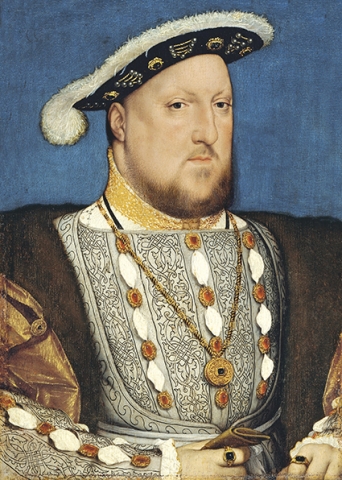Dublin Library Docs Reveal Interest of Henry VIII, Elizabeth I in Georgian Battles
If there is something we Georgians are really good at celebrating, it’s our history. Though facing stiff competition from a certain neighbor in the Caucasus in this noble endeavor, it can be said that Georgians are fiercely proud (and rightfully so) of our heritage. Therefore, it always becomes a major news story and a matter of much rejoicing when some snippets of our history, previously unknown, are revealed.
One such story hit our website late Saturday evening, as the Art Palace director Giorgi Kalandia jubilantly wrote to us about a recent discovery made in the National Library of Ireland. Here is our official story on the matter:
“The National Library of Ireland has presented the Art Palace of Georgia with 16 unique historical documents that were preserved in the library.
The documents consist of royal correspondence letters attributed to two famous monarchs that ruled over the British Isles: Henry the VIII (r. 1509-1547) and Elizabeth I (r. 1558-1603).
Apparently, both of these royal figures shared a keen interest in Georgian affairs and so commanded their ambassadors in Constantinople to send them extraordinary correspondence meticulously detailing the matters-at-hand in the Kartl-Kakheti and Samegrelo provinces.
Each of the documents is handwritten and all were unknown to Georgian society to date. Some of the letters are written in Latin, and the remainder in English.
The project that aims to transfer the copies of the unknown English and Irish documents dedicated to Georgia to the Arts Palace (State Museum of Theater, Music, Cinema & Choreography, Kargareteli Str. 6) is being carried out through the support of Ambassador of Georgia in the Republic of Ireland, Giorgi Zurabishvili, and embassy representative, Natia Kalandia.
Additionally, this year, Cartu Fund funded a project that aims to translate and research such historic documents. The project will ensure that in the near future, hundreds of European documents about Georgia, dated from the 16th to 18th century, will become accessible for researchers and scholars alike.”
If you, like us, became interested what it is that Henry VIII and Queen Elizabeth might have wanted to know about Georgia, here are the answers that Mr. Kalandia and his team promptly provided:
Most of the letters reflect the Georgian people's continual fight for their independence. During the 16th century, Georgia found itself in a vastly unequal fight against two great empires: Persia and Turkey. Aside from battle accounts, the letters report on the customs and traditions of Georgian people and especially their devotion to the Christian religion. We can say that the Ambassadors present Georgian people to Henry VIII and Queen Elizabeth I as a warrior people that are fiercely devoted to their faith and homeland. A Fragment from official correspondence sent to Henry VIII reveals that the author was suitably impressed by the battle prowess of Georgians:
''25,000 Georgians met the Persians on their return, but not being able to prevail on them to renew the fight, pursued them... The latter, reaching a rapid river, sent forward their horses into the stream to moderate the violence of the current, but lost more than 4,000 men and 30 gems, which were afterwards recovered by the Georgians."
While the letters might betray a hint of historical inaccuracy here and there, their uniqueness is unquestionable, and when translated and printed into Georgian, they’ll prove a valuable asset for both scholars and history geeks. Of especial importance is the fact that, judging from the nature of these letters, Georgia was undoubtedly considered a diplomatic power by the greats in the West.
And lastly, giving credit where its due – without the dedication and work of Mr. Kalandia and his partners in the Republic of Ireland, including the Chargé d'Affaires of Georgia, Mr. George Zurabashvili, these materials would possibly have had to stay in the annals of the Irish library for many more years. To make documents like that accessible to Georgian scientists and, consequently, the general public, is a noble deed indeed. And the search goes on- and with a pace like this, the British chronicles might soon yield many more secrets of days past.
Vazha Tavberidze












